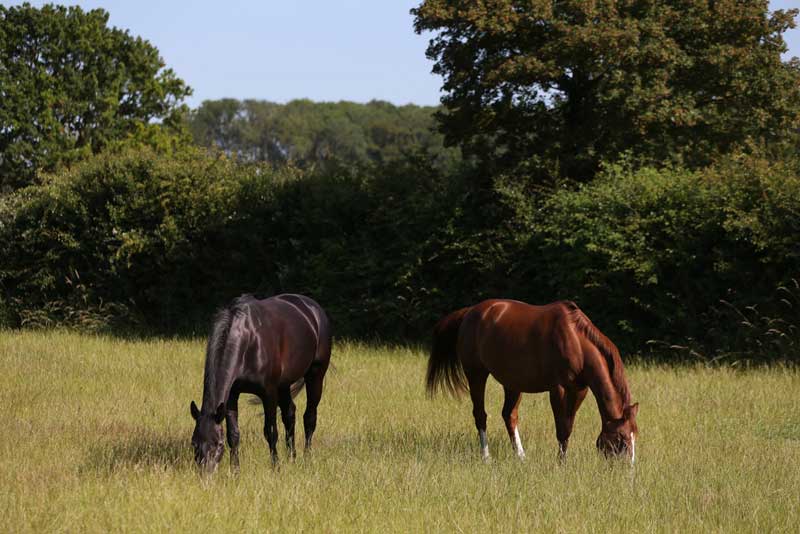Don’t be a sheep with your horse’s worm control

If other people on your yard won’t conduct faecal worm egg counts (FWECs) during the summer it doesn’t mean that you should follow the herd, say the worming experts at Zoetis. All horses respond differently to the same circumstances so it’s imperative to assess your horse both independently and as part of the group, when you plan your worming tactics so don’t be a sheep, be a leader.
The purpose of worming is twofold: to remove a burden of worms within an individual, which may otherwise cause disease; and to prevent re-contamination of the pasture by worm eggs released in dung by horses as they graze.
In any given herd on average just 20% of horses produce 80% of worm eggs, meaning some will need worming much more frequently than others.1 Conducting regular FWECs during the main grazing months will identify when your horse needs worming, even if no one else on the yard is bothering. FWECs measure the number of worm eggs in a sample of dung to give an estimate of the worm level in your horse. Using regular FWECs saves worming horses unnecessarily which helps to prevent the build-up of resistance to wormers. It can also save costs compared to regular worming alone.2 If your horse shares paddocks with other horses there is a risk that they will be contaminating the pasture excessively. This makes it even more important for you to perform regular FWECs for your horse and dose when necessary – usually when the count is more than 200 eggs per gram of dung.
In addition, strategic treatment for encysted small redworm in the autumn/early winter will be largely independent of other horses.1 Pasture can become heavily contaminated with worm eggs over the summer particularly when horses known to shed high levels of worm eggs in their droppings are left untreated or if poo-picking is infrequent. This can lead to large burdens of encysted small redworm larvae in any horse. In addition a tapeworm test or treatment is recommended every six months in the autumn and spring.3 Finally horses under three years old will need worming more frequently than their adult counterparts – you should consult your vet or SQP for specific advice.
Three horses kept together in the same management regime on a private yard illustrate the importance of assessing horses as individuals as well as part of the herd. Ensign, Brown and Pop were all given a strategic tapeworm treatment in late February 2016 and FWECs were done in early May 2016. Ensign, a 29-year-old cob, had a redworm count at just over 250epg which was higher than on the previous six counts: Brown, a recently acquired five-year-old native had a high count of 550epg and Pop, a 12-year-old Irish x TB had no eggs present.
Wendy Talbot explains the possible reasons why the results for the three horses were so different, despite the fact that they are turned out together: “Ensign’s count is higher than normal which could mean that his age is starting to limit his immunity. He was treated with a wormer effective against redworm. Regular FWECS will be more important than ever at his age to help keep a watchful eye on his susceptibility. Brown is relatively new to the herd and is likely to have brought a worm burden with him when he arrived. New horses can often shed more eggs in dung, with no correlating increase in worm burden because of the stress of settling into a new environment. He was treated for tapeworm and roundworm, including encysted stages of small redworm and there should be improvement at the next FWEC. Pop is in his prime, is well established with the worming regime on this yard and shows good immunity reflected by low egg shedding.”
The case study shows that, while it is best practice to synchronise FWECs and required treatments for all horses in the herd to minimise pasture contamination and subsequent re-infection, each horse also needs careful assessment as an individual.
Visit www.wormingyourhorse.info. Further information is available from: Zoetis UK Ltd, Walton Oaks, Dorking Road, Walton-on- the-Hill, Tadworth, Surrey KT20 7NS Customer Support: 0845 3008034, www.zoetis.co.uk.
Use medicines responsibly: www.noah.co.uk/ responsible
References
1, Lester, HE and Matthews, JB (2014) Equine Vet. J. 46, 139-145
2. Lester, HE et. Al. (2013) Vet Record, 173, 371
3. Proudman and Matthews, In Practice (2000) 22, 90-97
